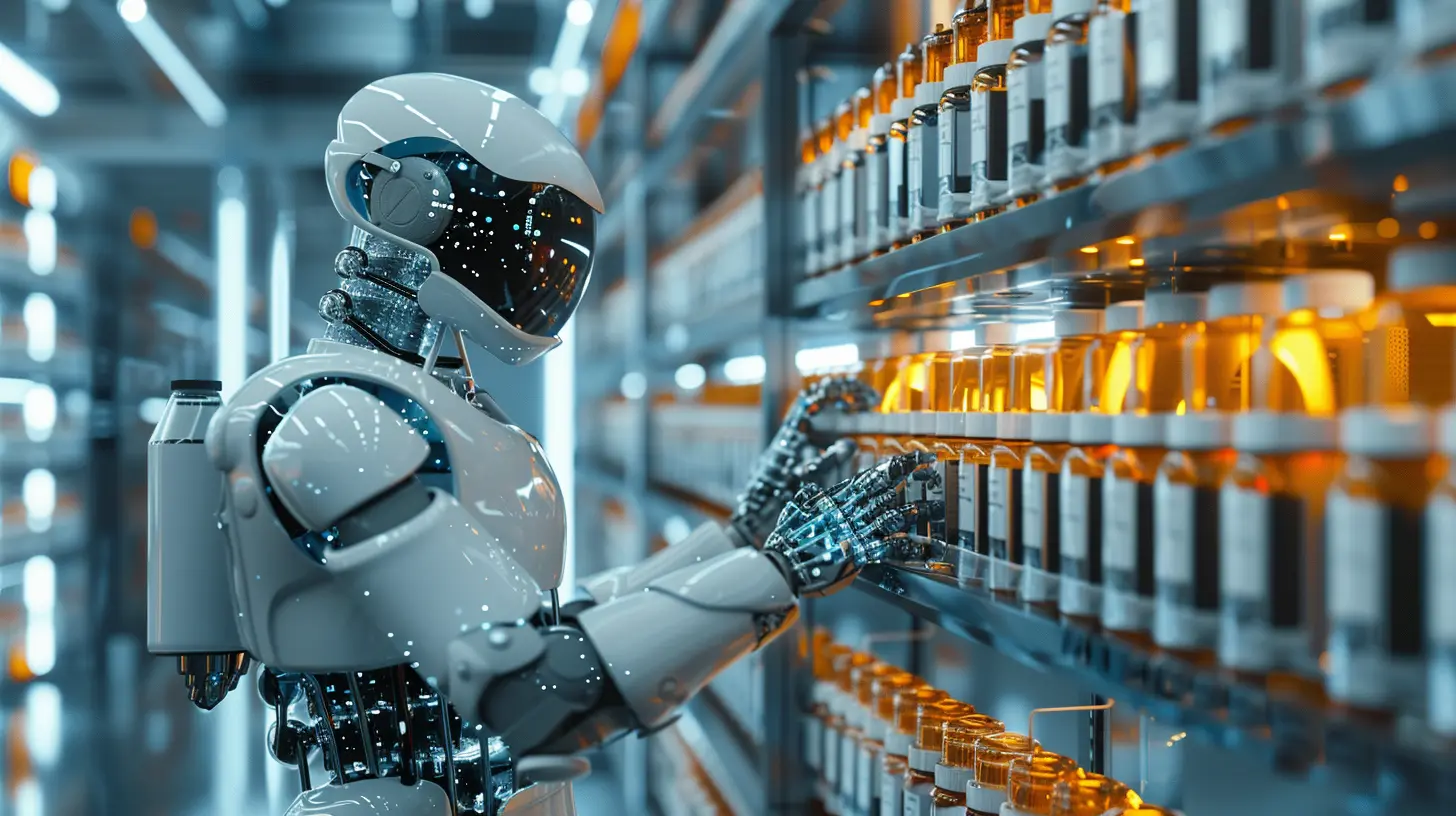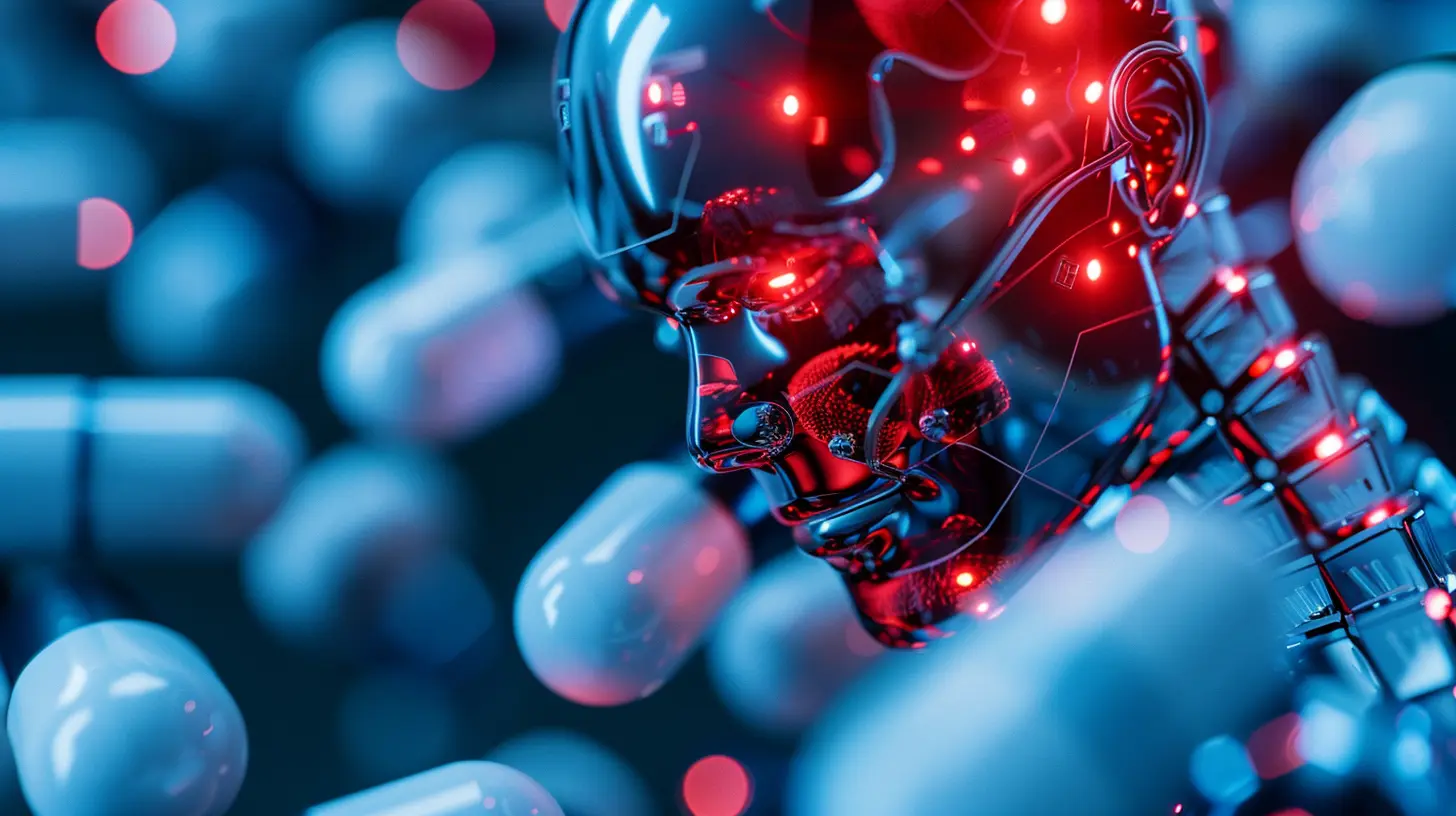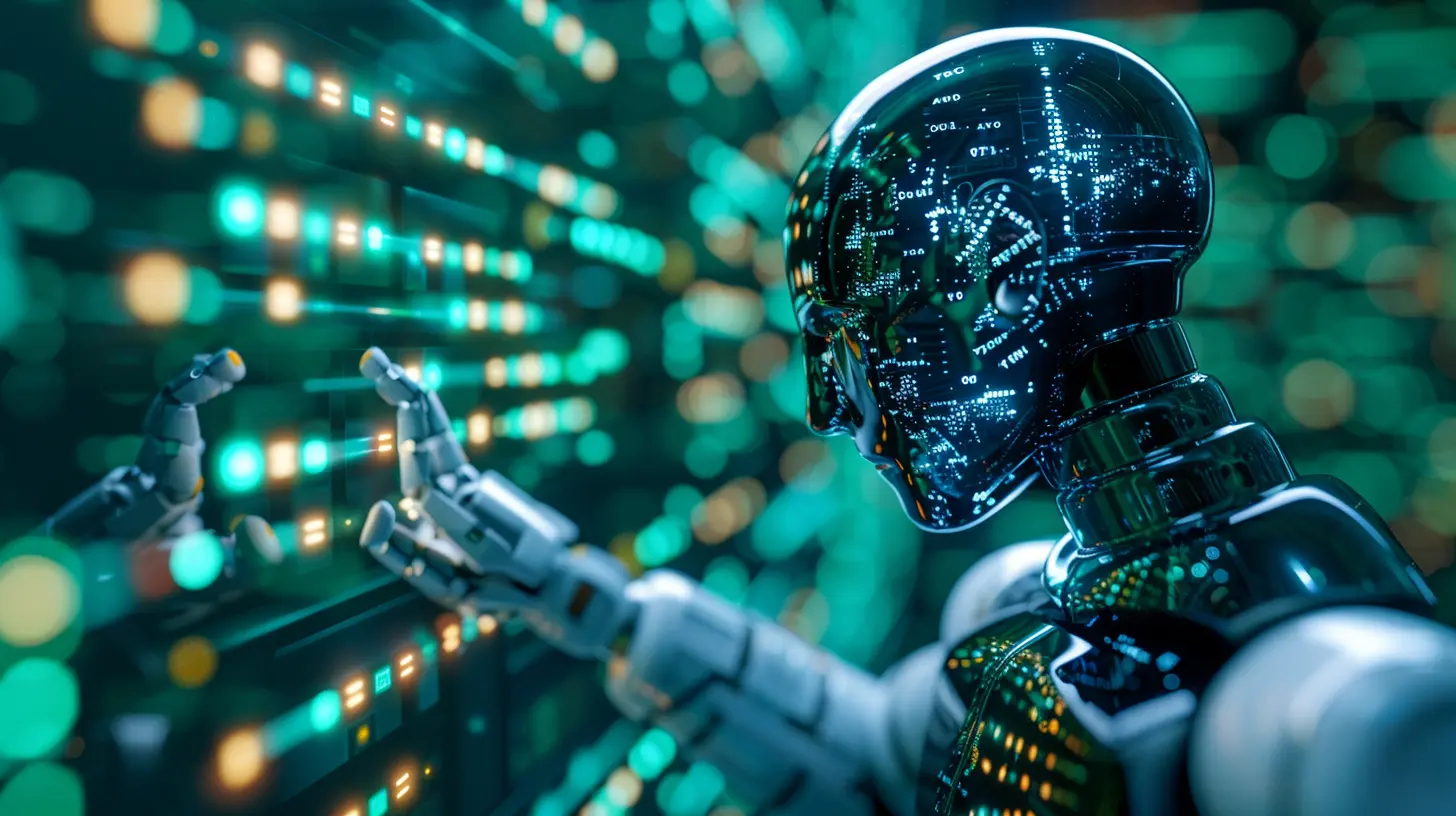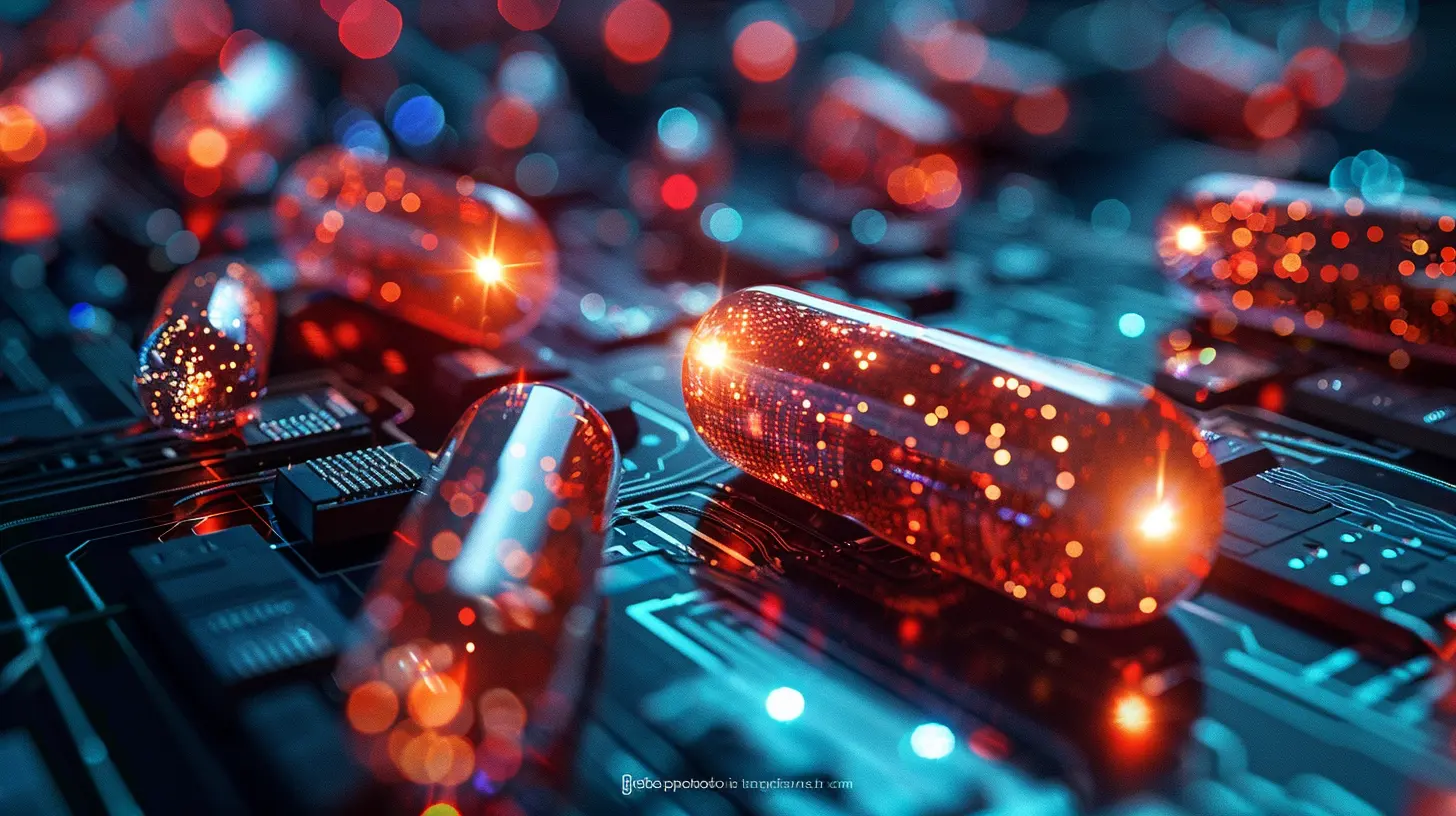The Role of AI in Drug Discovery and Development
27 September 2025
Imagine being able to cut years — even decades — off the time it takes to develop life-saving medications. Pretty wild, right? That's exactly the kind of promise artificial intelligence (AI) is bringing to the world of drug discovery and development. What once took a sea of scientists, mountains of paperwork, and a whole lot of trial and error is now being fast-tracked with smart algorithms and ultra-powerful computing.
But let’s slow down a bit. What does AI really do in this space? And how does all this techy stuff actually help people — like you and me — get better treatments faster and more safely?
Let's break it down together.
What’s the Deal with Traditional Drug Discovery?
Before we dive into the AI magic, it’s worth understanding just how challenging drug discovery has been up until now. The process is long, expensive, and brutally difficult. On average, it takes 10–15 years and billions of dollars to bring a single new drug to market. And here's the kicker — around 90% of drugs fail before reaching patients.Why? Because finding a good drug candidate involves searching through countless chemical compounds, testing them repeatedly in labs, then in animals, and finally in human trials. It's like looking for a needle in a haystack... blindfolded.
Enter AI – The Game-Changer
Now imagine if something could sift through that haystack at lightning speed and point you straight to the needle. That’s AI in a nutshell. AI algorithms are incredibly good at pattern recognition, prediction, and learning from huge amounts of data — which is exactly what drug discovery needs.So what roles does AI actually play here? Let’s break it down step by step.
1. Spotting Potential Drug Candidates Faster
You know how Netflix seems to know exactly what you want to watch next? That's machine learning in action. In drug development, AI uses similar techniques to predict which molecules might have therapeutic potential. Instead of watching movies, though, it's scanning databases and reading scientific literature — millions of pages! — in seconds.By analyzing patterns in chemical structures and biological activity, AI can identify potentially promising compounds way faster than humans ever could. That alone can shave years off the research timeline (and save a lot of money, too).
2. Target Identification and Validation
So now we’ve got a molecule... but what’s it supposed to work on?This is where target identification comes in. A “target” is usually a protein or gene in the body that the drug is meant to interact with — kind of like how a key fits a lock. AI can analyze massive biological datasets to discover which targets are involved in a particular disease and whether they can be “drugged” effectively.
Even cooler? AI doesn’t just find the obvious ones. It can spot connections and subtle patterns that human researchers might miss entirely. This opens the door to entirely new approaches to treatment.
3. Predicting Drug Safety and Side Effects
Drug development is risky business. Even promising drugs can turn out to be toxic or cause harmful side effects. Traditionally, these issues often aren’t spotted until expensive, late-stage clinical trials — or worse, after the drug is already on the market.AI helps change that.
By training on data from past trials and adverse event databases, AI models can predict potential safety concerns much earlier in the process. They flag molecules likely to be toxic, so researchers can steer clear — or modify them before things go too far. It’s like having a built-in safety inspector working around the clock.
4. Designing Clinical Trials More Intelligently
Clinical trials are essential, but they’re also one of the biggest bottlenecks in the process — time-consuming, expensive, and often inefficient. But AI is stepping up here too.From finding the right patients to predicting how they'll respond to treatment, AI helps make trials smarter and more targeted. It can even simulate virtual trials (yes, like digital twins of real people) to forecast outcomes before actual trials begin.
And let’s not overlook diversity — AI can ensure that trial participants more accurately reflect the populations the drug is meant to help, addressing a big problem in healthcare equity.
5. Drug Repurposing — A New Life for Old Drugs
Remember hydroxychloroquine? Or how remdesivir, originally developed for Ebola, was repurposed for COVID-19? That’s drug repurposing — using existing drugs to treat different diseases.AI is especially good at this. It can scan through heaps of data to find unexpected links between old drugs and new diseases. It’s like finding a hidden treasure in your attic that suddenly becomes the latest tech gadget.
In emergencies like pandemics, drug repurposing powered by AI can get treatments to patients a whole lot faster than starting from scratch.
6. Personalized Medicine — Because One Size Doesn’t Fit All
We’re all different. Genetically, biologically, and even in how we react to medications. So why should treatment be one-size-fits-all?AI enables a shift toward personalized medicine by analyzing a person's genetic makeup, biomarkers, lifestyle, and more to tailor drug therapies that work best for them.
Think of it like having a suit custom-tailored rather than buying off the rack. It just fits better — and works better, too.
Why AI Matters to Patients (Yes, You!)
At a high level, all this AI talk might sound cool but far removed from everyday life. But here’s the thing: It affects you more than you might realize.Faster drug development means quicker access to treatments. Smarter trials mean fewer side effects. Personalized medicine means better outcomes.
And for families dealing with cancer, rare diseases, or chronic illnesses, it’s not just about efficiency. It’s about hope. AI might be the key to unlocking therapies that were previously out of reach.
Real-World Success Stories
You might be wondering — is all this just hype, or is it actually happening?Let’s take a look at some real-world examples:
- Exscientia, a UK-based company, developed the first AI-designed drug to enter human trials — in less than a year.
- BenevolentAI used AI to pinpoint baricitinib (a rheumatoid arthritis drug) as a possible COVID-19 treatment — which actually got fast-tracked and approved.
- Insilico Medicine developed a potential fibrosis treatment in just 18 months, a process that traditionally takes 5 years or more.
These aren’t theoretical. They’re real, tangible advances that are changing how medicine is done.
Challenges and Ethical Considerations
Okay, we’re not going to pretend AI is perfect. Like any tool, it has limits — and it raises important ethical questions.What happens if an AI makes a mistake in identifying a drug candidate? Who's responsible? How do we ensure the data it's trained on isn’t biased or incomplete?
Then there's the transparency issue — AI models, especially deep learning ones, can be like black boxes. You get results, but you don’t always know how or why.
Regulatory agencies like the FDA are still figuring out how to evaluate and monitor AI-driven drug discoveries, and that’s going to be a work in progress for a while.
The Human Element Still Matters
No matter how smart AI gets, human judgment, creativity, and empathy will always matter. Scientists and doctors aren’t being replaced — they’re being empowered.AI is like a super smart assistant — it does the heavy lifting with data so that the experts can focus on what they do best: solving problems, making decisions, and caring for people.
Looking Ahead — What’s Next?
The future looks bright for AI in drug development. We’re going to see even more integration between biotechnology, data science, and clinical practices. Some predictions:- AI-driven automated laboratories that run 24/7 without human intervention.
- Dynamic clinical trial platforms adapting in real-time based on participant data.
- AI models trained on multi-omics data (genomics, proteomics, metabolomics) giving us an ultra-detailed view of disease and wellness.
We're truly just scratching the surface.
Final Thoughts
AI in drug discovery isn’t just about faster results or cooler tech. At its heart, it’s about people — finding better treatments, improving quality of life, and giving hope where there once was none.It won’t solve everything overnight. But it’s helping us move faster, smarter, and with greater compassion toward a future where better health is within reach for all.
And that? That’s the kind of future we can all root for.
all images in this post were generated using AI tools
Category:
Artificial IntelligenceAuthor:

Jerry Graham
Discussion
rate this article
1 comments
Damon Mathews
Sure, let’s leave our health to algorithms—what could possibly go wrong?
October 2, 2025 at 10:44 AM

Jerry Graham
AI enhances drug discovery by analyzing vast data efficiently, but human oversight is crucial to ensure safety and ethical standards.


